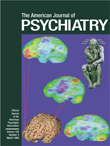Characteristics of Depressed Patients Who Report Childhood Sexual Abuse
Abstract
OBJECTIVE: Depressed patients who had and had not been exposed to childhood sexual abuse were studied to determine differences in severity of depressed mood, lifetime histories of anxiety and depression, childhood environment, and disordered personality function. METHOD: Data were obtained from 269 inpatients and outpatients with major depression (171 women and 98 men) by means of structured clinical interviews and self-report questionnaires. RESULTS: Forty-six of the 269 patients reported childhood sexual abuse; 40 of these were women. These 40 women were compared with the 131 who did not report childhood sexual abuse. The patients who experienced abuse did not differ from those who had not on psychiatrist-rated mood severity estimates, but they did have higher self-report depression scores. They also evidenced more self-destructive behavior, more personality dysfunction, and more overall adversity in their childhood environment. Childhood sexual abuse status was associated with more borderline personality characteristics independently of other negative aspects of the patients’ earlier parenting. Childhood sexual abuse status was linked strongly to adult self-destructiveness, as was early exposure to maternal indifference. CONCLUSIONS: Multivariate analyses suggest that depression is unlikely to be a direct consequence of childhood sexual abuse. Childhood sexual abuse appears to be associated with a greater chance of having experienced a broadly dysfunctional childhood home environment, a greater chance of having a borderline personality style, and, in turn, a greater chance of experiencing depression in adulthood. (Am J Psychiatry 1999; 156:431–437)



